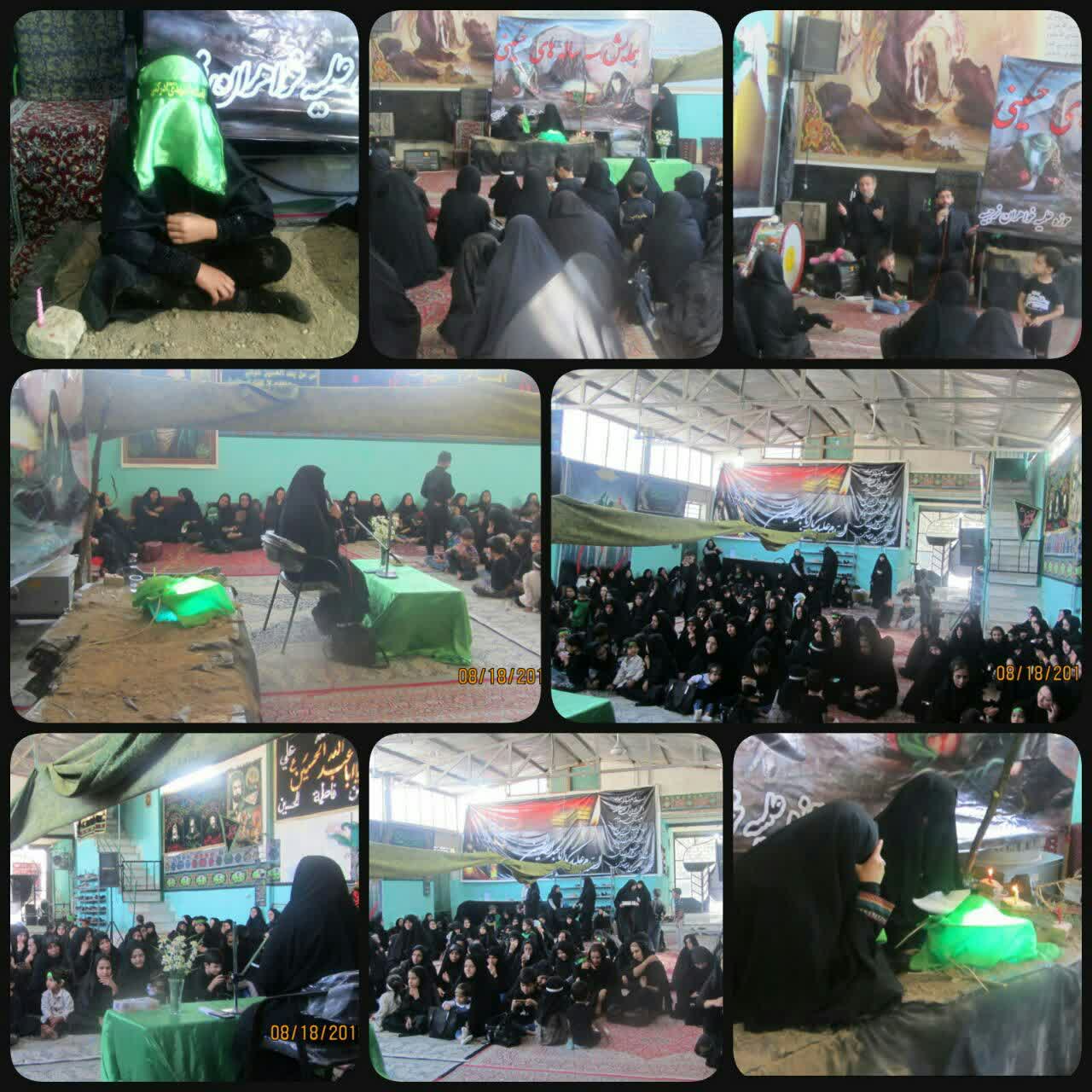MY Qasim
بسم الله
نمی دانم این بار می شود روضه قاسم را خواند یا نه؟
در آغوش عمو بزرگ شد،
Peace be upon you, O Abdullah
- Sixth night
In the name of God
I do not know if this time it is possible to read Qozem lamentation or not?
Grew up in Uncle’s arms,
شب عاشورا، گوشه خیمه نشسته بود، نگران بود، مگر می شد بدون عمو زیست، مگر امکان داشت بعد از عمو نفس کشید، مگر می شد تصور کرد دنیای بدون عمو را…
Ashura’s night, in the corner of the tent, he was worried, could he live without his uncle, could he breathe after his uncle, could he imagine a world without his uncle…
نکند او را نبرند؟
Shouldn’t they take him?
نکند بخاطر کوچکی، او را در خیام بگذارند؟
Shouldn’t they put him in tents because of his age?
نکند به عمه جان، از قبل سفارشش را کرده باشد؟
Shouldn’t he have already ordered his beloved aunt?
نکند…
Don’t …
قاسم ادب داشت، احترام نگه میداشت، میدانست جمع بزرگهاست، عمو و اصحابش؛ علیاکبر بود، عمو عباس هم مثل همیشه کنار عمو نشسته بود. گذاشت حرفهایشان، سؤالهایشان، درد و دلهایشان تمام شود، همان گوشه نشسته بود، وقتی عمو گفت، فردا کسی نمیماند، نگران شد، ترسید، سرش را زیر انداخت، گونههایش سرخ شد، اما اگر الان نمیپرسید، شاید…
Qasim was polite, respectful, he knew it was a great crowd, his uncle and companions; Ali Akbar, Uncle Abbas was sitting next to his uncle, as always. He let their words, their questions, their quirks ended, he was sitting in the corner, when Uncle said, “Tomorrow no one will stay, he will worry, he will scare his head, his cheeks will be red, but if you don’t ask now, maybe ..” .
- عموجان!
- Dear Uncle!
مثل همیشه برگشت، چشم دوخت، لبانش به تبسم گشوده شد. جرأت کرد سؤال کند، پرسد، تکلیفش معلوم شود.
As always, he stared, smiled, he dared to ask, his task to be known.
- عموجان! من هم؟
- Dear Uncle! me too?
لبخند عمو عمیق شد، اما دانههای اشک در گوشه چشمانش جمع شد و سؤال کرد: تو شهادت را چگونه میبینی؟
Uncle’s smile deepened, but tears fluttered in the corner of his eyes and he asked: How do you see the testimony?
لازم نبود فکر کند، تأمل کند، از کسی بپرسد، انگار این جواب را با خود مرور کرده بود، پاسخ داد: عسل، به شیرینی عسل هم نه، از آن هم شیرینتر و گواراتر…
He didn’t have to think, ponder, ask anyone, as if he had reviewed the answer with himself, replied: Honey, not honey, sweeter and sweeter …
باز عمو لبخند زد، اما دانهای اشک از گوشه چشمانش سر خورد.
Uncle smiled again, but a grain of tears ran down the corner of his eyes.
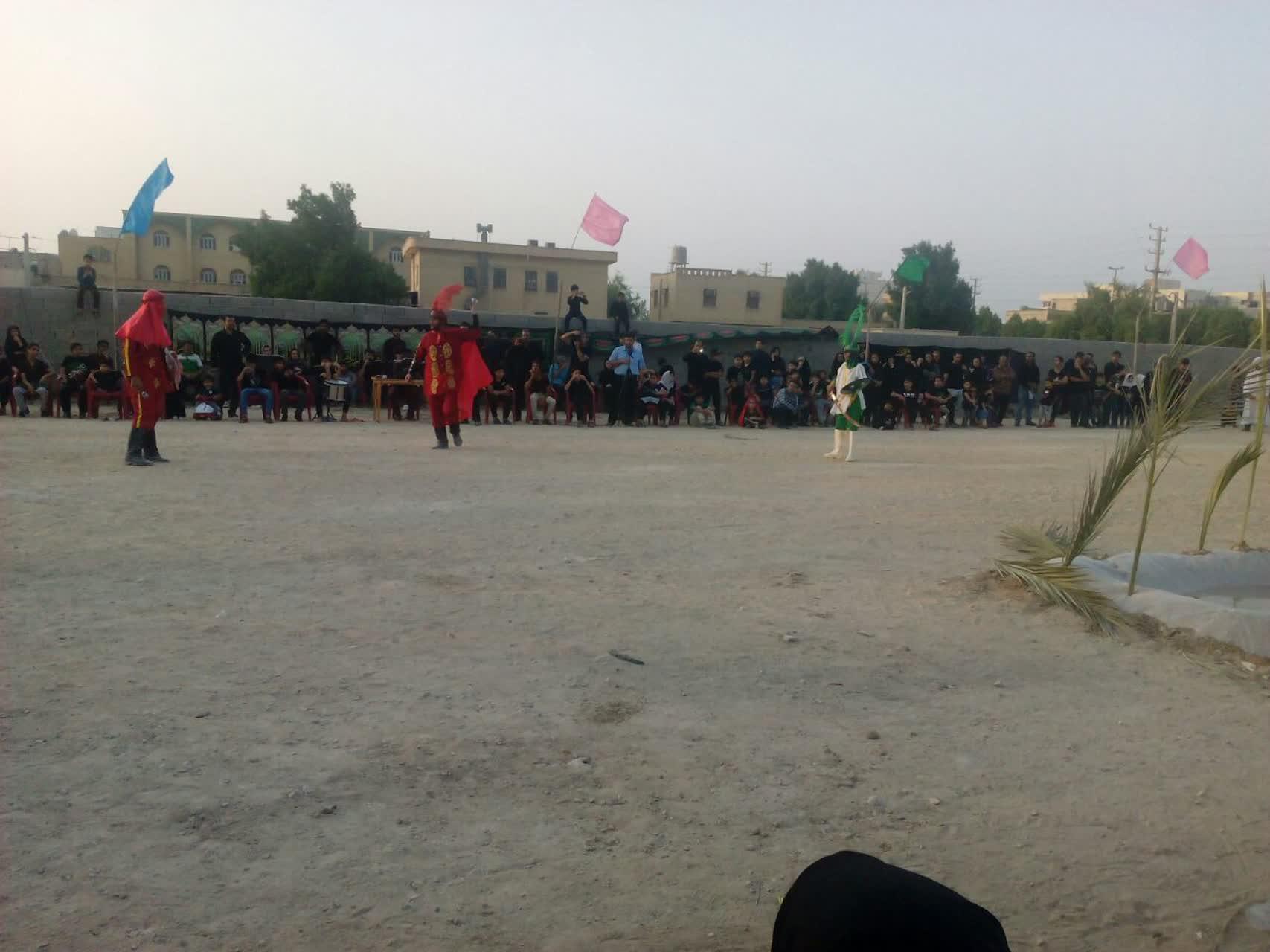
خیلیها رفته بودند؛ اصحاب شهید شدند. بدن پسرعمویش علی، عموهایش عثمان و جعفر و عبدالله در خیمه شهدا بود. این پا و آن پا میکرد، خواست عمه جان را واسطه کند، یا سراغ مادر برود. رفت پیش عمو،
Many were gone; the companions became martyrs. His cousin Ali’s body, his cousins Osman and Ja’far and Abdullah were in the Martyrs’ Tent. He would do it, he wanted to dear aunt, or he would go to his mother. Went to uncle,
- عمو جان، اجازه هست؟
لبخندی زد و گفت: نه عزیزدلم، نه عزیزدل برادرم… تو امانتی.
- Dear uncle, is it allowed?
He smiled and said, “No my dear, no dear my brother … You trust me.
خودش را در آغوش عمو انداخت و گریست. اصرار و التماس و خواهش و تمنا فایده نداشت. بیرون آمد، اشک،ها دانه دانه سر میخوردند و پایین میآمدند، اما حرف عمو یکی بود. تا خیمه مادر دوید، پرده را کنار زد و خودش را در آغوشش جا داد. زار میزد: مادر، شما بگو شاید عمو بپذیرند… نمیگذارد بروم. علی رفت، عون و محمد، پسرعمههایم رفتند، چرا باید بمانم؟ مگر نه اینکه همیشه عمو میگفت مهم سن و سال نیست، مادر بگو چه کنم؟ نمی توانم بدون عمو بمانم، و سرش را در آغوش مادر جا داد.
He hugged his uncle and wept. Insistence, begging, pleading and pleading would not work. He came out, tears ran from seed to seed,but, uncle’s words didn’t change. He ran to her mother tent, he removed the curtain and held himself in her arms and cried: Mother, you say uncle, maybe he’ll accept ..he won’t let me go. Ali went, Aun and Muhammad, my cousins went, why should I stay? Tell mom unless my uncle always said that age doesn’t matter. Tell mom what to do? I can’t stay without my uncle, and he holds his head in his mother’s arms.
اشکهای مادر یکی یکی سر میخورد و لای موهای قاسم گم میشد. نمیتوانست از این دردانه دل بکند. بعد از همسر، هر وقت او را میدید، یاد او می افتاد.
Mother’s tears went one by one and were lost in Qassim’s hair. Could not leave his beloved heart.. After the wife, she would remember him whenever she saw him.
- قاسمم…
- مادر، کاری بکن، وساطتی کن، شما بگو، شاید عمو بپذیرد. مادر خواهش میکنم، مادر تو را به خدا…
- MY Qasim.
- Mother, do something, mediate, you say, maybe Uncle will. Mother, please, mother to God …
مادر اشک هایش را پاک کرد، نفس عمیقی کشید، دست برد لای وسایل گوشه خیمه و نامه ای را بیرون آورد. قاسم را در آغوش کشید، بلند کرد، صورتش را بوسید، اشک هایش را سترد و گفت: پدرت این مکتوب را برای امروز نوشته بود. برو عزیز دلم، فقط قول بده سلامم را به پدر برسانی و بگویی دلتنگم. برای خداحافظی هم برنگرد، می ترسم نتوانم…
Mother wiped her tears, took a deep breath, took out a handful of tents and brought out a letter. He hugged Qasim, raised him, kissed his face, tears his eyes, and said: “Your father wrote this letter for today.” Go on, my dear, just promise to say hello to my father and say I miss you. Don’t even go back for goodbye, I’m afraid I can’t
قاسم، بهت زده، به نامهای نگاه کرد که در دستش بود. قلبش در سینه میتپید، دست مادر را گرفت، بوسید: حلالم کن مادر و رفت.
Qasim, stunned, looked at the letter in his hand. His heart pounded in his chest, he held his mother’s hand, kissed: forgive my mother and go away.
تا خیمه عمو یک نفس دوید، پرده را کنار زد. خم شد، دست عمو را بوسید و نامه را به دستش داد.
Until the uncle’s tent ran a breath, he pulled the curtain aside. He bent over, kissed Uncle’s hand, and handed him the letter.
چند دقیقه بعد، این صدای قاسم بود که در میدان میپیچید: آهای حرام زادهها، آهان مردم کوفه! اگر مرا نمیشناسید، من فرزند حسن (علیهالسلام) نوه پیامبر برگزیده و امینم. این حسین (علیهالسلام) همانند اسیر و گروگان، گرفتار مردمى است که باران رحمت بر آنها نبارد.
A few minutes later, it was Qassem’s voice twisting in the field: Hey bastards, oh Kufa people! If you do not know me, I am the son of Hassan (peace be upon him) the grandson of the Prophet and the faithful one. Hussein (PBUH) like captives andhostages, is plagued by people whom may God don’t have mercy upon them
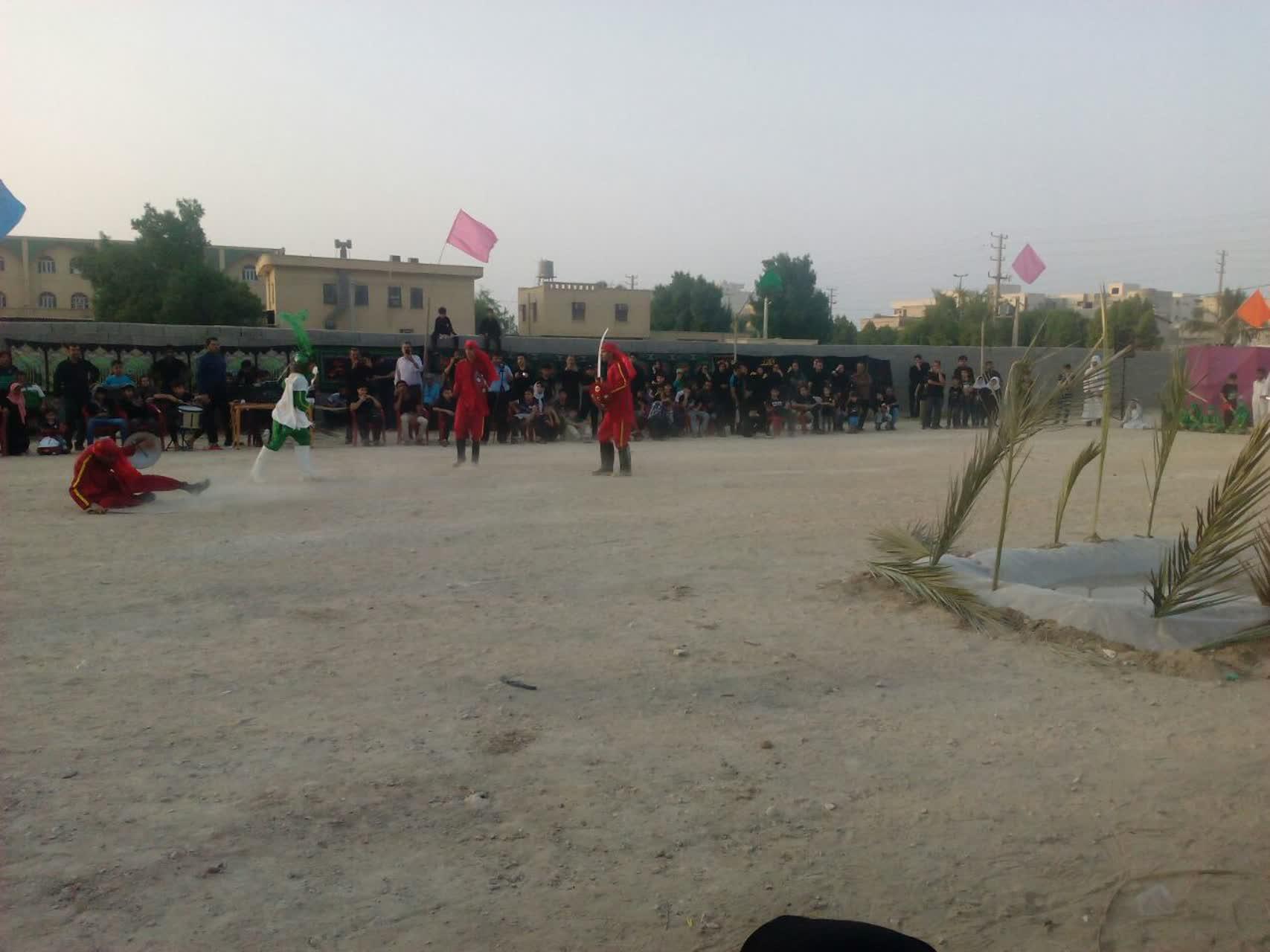
Emam Bagher.as
پنجمین امام شیعیان، ابوجعفر، محمد، ملقب به باقر العلوم، فرزند امام علیبنالحسینعلیهالسلام و فاطمه بنت حسنبنعلیعلیهالسلام است. ایشان در سال 57 هجری قمری در شهر مدینه به دنیا آمد. در چهار سالگی در کربلا، همراه با کاروان اسرای عاشورایی واقعهی مصیبتبارِ کربلا را درک کرد و پس از 35 سال امامتِ پدر بزرگوارش، در سال 94 یا 95 قمری به امامت رسید. دوران امامت حضرت، مصادف با ضعف خلافت اُموی و درگیریشان با عباسیان بود. همین امر، فرصت مناسبی را ایجاد کرد تا امام باقرعلیهالسلام گامهای بسیار مهمی را برای تدوین فرهنگ شیعه در برابر ظهور و بروز عقاید و افکار انحرافی بردارد. کم شدن فشار و کنترل حاکمیت، به دلیل نزاعِ قدرت، موجب پیدایش و رواج فِرَق و گروههای انحرافی زیادی مانند “غُلات” و “خوارج” شده بود. امام باقرعلیهالسلام علاوه بر احتجاجات و مبارزات علمی که شخصا با بزرگان ادیان و مذاهب داشته، شاگردان ممتازی را در راستای معرفی و ترویج معارف ناب اسلامی داشته است. از جمله شاگردان برجستهی ایشان محمدبنمسلم، زراةبناعین، حمرانبناعین، ابوبصیر، هشامبنسالم و بریدبنمعاویهعجلی بودهاند. حضرت محمد باقرعلیهالسلام پس از 58 سال زندگی پر فراز و نشیب در سال 114 قمری توسط خلیفهی وقت، هشامبنعبدالملک مسموم و به شهادت رسید. مرقد شریف ایشان در قبرستان بقیع در شهر مدینه است. روایات و احادیث بسیاری از امام باقرعلیهالسلام در دست شیعیان است. در ادامه، برای تَیمّن، چند روایتِ ایشان را از کتاب شریف تحفالعقول، تالیف ابومحمدحّرانی نقل میکنیم:
۱. «إعرف المودةَ فی قلبِ أخیکَ بِما لُه فی قلبک»؛ مهر قلبیِ برادرت نسبت به خود را با ارزیابی مهرِ قلبیت نسبت به او، بشناس.
۲. «ألحیاءُ و الایمانُ مقرونانِ فی قرنٍ، فإذا ذهب أحدهما تبعه صاحبه»؛ حیا و ایمان در یک ریسمان، پیوسته و تنیده شدهاند، هرگاه یکی از آن دو رَوَد، دیگری نیز به دنبالش برود.
۳. «ألبِشرُالحَسَن و طِلاقةُ الوجه مکسبه للمحبّهِ و قربهٌ من الله. و عبوسُ الوجهِ و سوء البِشرِ مُکسبهٌ للمُقتِ و بُعدٌ من الله»؛ چهرهی شاداب و خوشرویی مِهرآور و نزدیککننده به خدا، و چهرهی عبوس و بدرویی دشمنیآور و دورکننده از خداست.
The fifth Imam of the Shi’ites, Abu Ja’far, Muhammad, Bagher al-Ulum, the son of Imam Ali ibn al-Hussein (peace be upon him) and Fatimah Bennet Hassan ibn Ali (peace be upon him).He was born in the city of Medina in the year 57 AH. At the age of four in Karbala, along with a prisoner convoy of Ashura, he realized the tragic event of Karbala, and after 35 years of Imamate of his father, he succeeded in the year 94 or 95 BC. The Imamate era was coincident with the weakness of the Umayyad caliphate and its engagement with the Abbasids. The same thing created a good opportunity for Imam Baqir (pbuh) to take very important steps towards the development of Shiite culture against the emergence and outbreak of ideas. Lowering the pressure and control of the sovereignty, due to the conflict of power, led to the emergence and spread of a variety of diverse groups such as skharthyj. Imam Baqir (pbuh ) in addition to the censure and the scientific struggles that personally with the great religious leaders, had outstanding students in the direction of the introduction and promotion of pure Islamic teachings. Among his outstanding students were Mohammed ibn Musa’m, Zara’t ibn Ayin, Hamran ibn Ayin, Aboubsir, Hisham bin Salem and Brayd Bin Muawiyah. Many Hadiths of the Imam Baqir (PBUH) are in the hands of the Shiites. In the following, for For tanksgiving, we narrate some of their narrations from the book of Taqafolqql, compilation of Abu Mohammad ;
1. Know your brother’s heart’s affection towards yourself by evaluating the heartfelt affection towards him ;
2. Humility and Faith are continually and intertwined in a string; whenever one of the two goes, another will follow it.
3. The happy face makes love and brings man closer to God. The sullen face makes
همایش سه ساله های حسینی
بابای من!
بابا که دیر میکند دخترهاش مدام غُرُلند میکنند و بیقراری. دخترها کلا بابایی اند. تا چند دفعه سراغش رانگیرند آرام نمیشوند. تا بابا نیاید لب به غذا نمیزنند. تا بابا نباشد خوابشان نمیبرد. تا بابا نباشد… بابا نیست رقیه جان اما عمه اینجاست. میدانم که عمه جای بابا رابرایت پر نمیکند اما… بیا امشبی را هم بخواب. بابا بالاخره صورت ماهش را نشانت میدهد. بابا خیلی جاها رفته. بالای نی. در صندوقچه. تنور خولی. تشت طلا… هلال ماه شب تارم بابا. بیا و دخترت را هم با خودت ببر! #حسینیه_نبشته_ها ✍️ به قلم #خاتون_بیات ? آدرس این مطلب در وبلاگ ما: http://nebeshte.kowsarblog.ir/بابای-من-1 ? @sobhnebesht ?
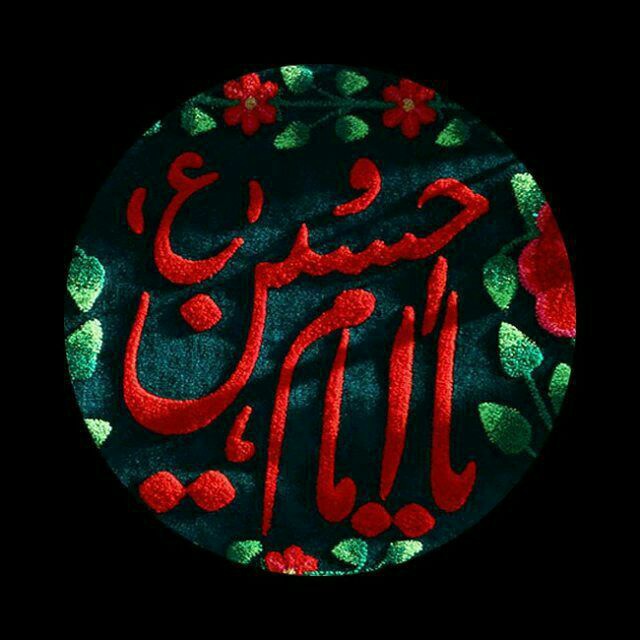
گوشه ی ششم
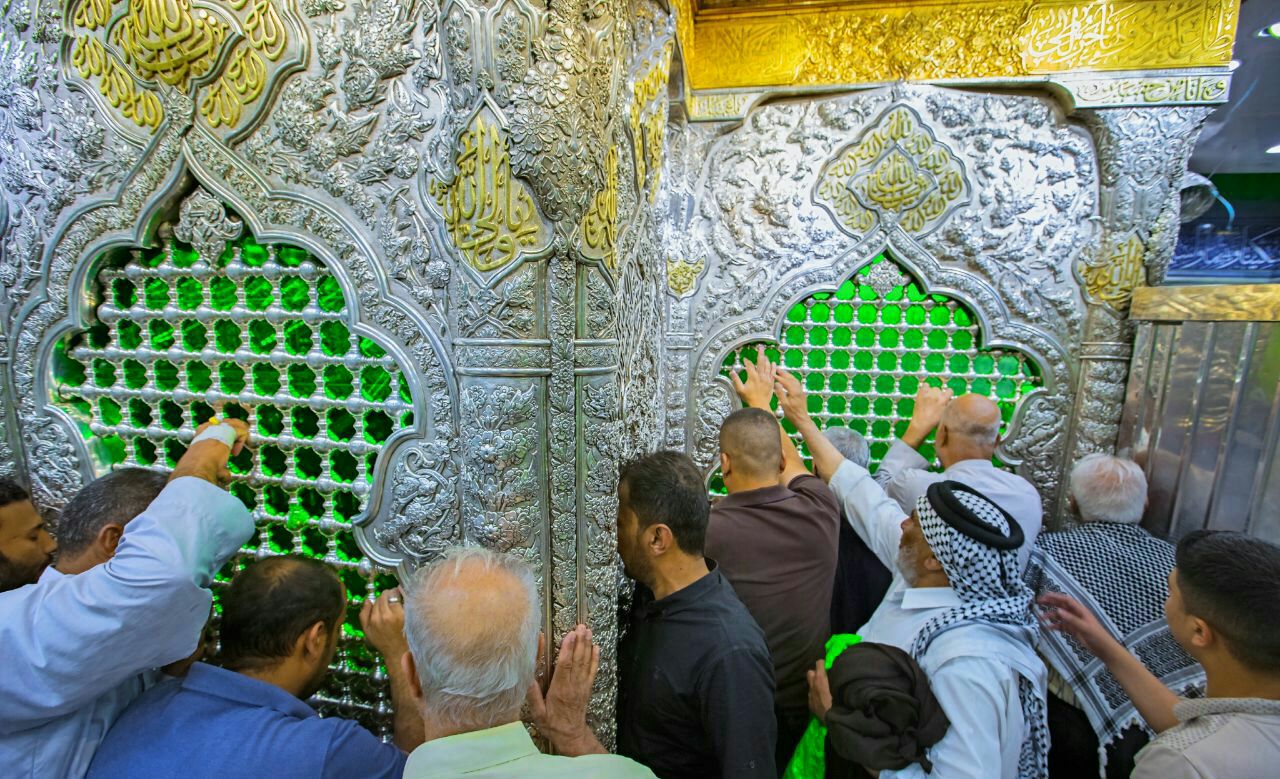
محل دفن پسر بزرگ ابا عبد الله الحسین علیه السلام یعنی علی اکبر علیه السلام زیرپای حضرت می باشد. به همین دلیل ضریح حضرت حسین علیه السلام شش گوشه دارد. مدفن طفل شیر خواره ی ابا عبد الله علیه السلام یعنی علی اصغر سلام الله علیه نیز در همین مکان و بر روی سینه ی پدر است.
دانی که چرا اصغر بی شیر و شهید
در دادن جان به روی بابش خندید؟
یعنی که پدر زنوک پیکان دیدم
اکبر به جنان از پی من می گردید
Hazrat Muslims Story
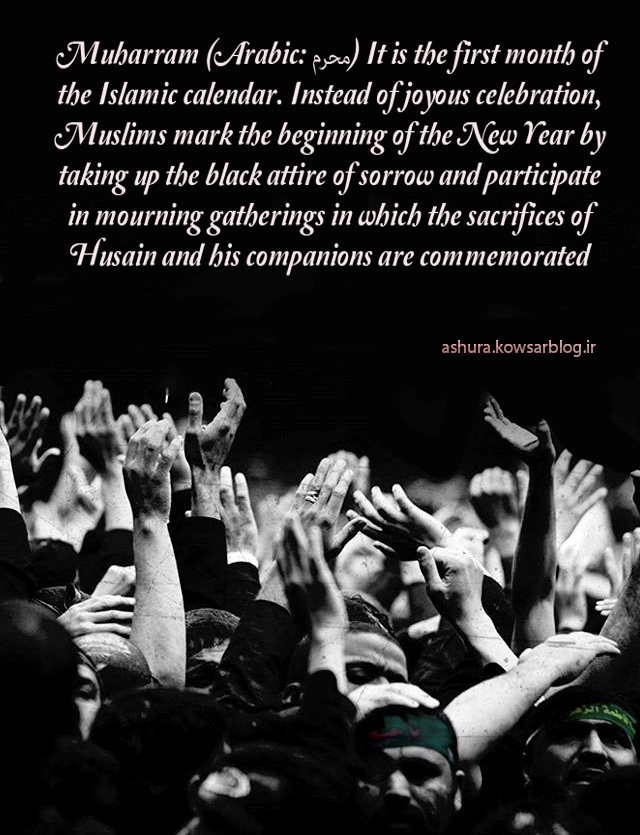
Muslim’s name is associated with loneliness and innocence. When we talk of Muslim it definitely reminds us of the dark alleys of Kufa. It always brings tears of sadness to our eyes because Muslim’s only address is the close doors of Kufa.
Muslim and the Unfaithful Kufa
Muslim in Kufa
After forty days of examining the situation in Kufa, Muslim wrote this letter to Imam Hossein: “the majority of the people of Kufa are ready to support you. You can immediately move towards Kufa.”
Ibn Ziyad’s Arrival in Kufa
Lady Zaynab(A.S.) the Fragrance of Holy Ahl-ul-Bayt
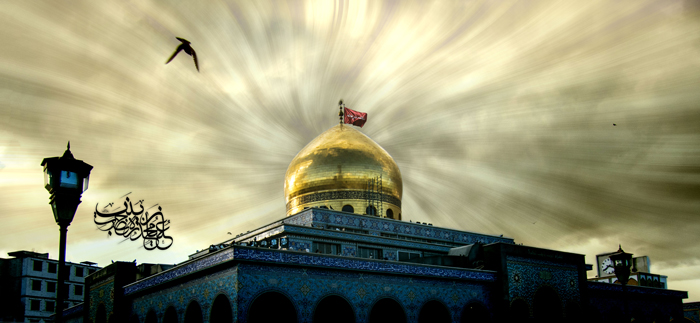
Daughter of the Holy Prophet’s (peace be upon him and his household) daughter. Sister of the King of Martyrs. She is a true role model for any woman today of any religion. She showed the world the definition of womanhood. Her bravery and courage stands alone in a field of millions. She was tied up and taken as a prisoner. She had her scarf ripped off her head, she had her house burned to the ground. She was Janab-e-Zainab.
In her character she reflected the best attributes of those who raised her. In sobriety and serenity she was likened to Umm ul-Muminin Khadija, her grandmother (s.a.); in chastity and modesty to her mother Fatima Zahra (s.a.); in eloquence to her father Imam Ali (a.s.); in forbearance and patience to her brother Imam Hassan (a.s.); and in bravery and tranquility of the heart to Imam Hussain (a.s.). Her face reflected her father’s awe and her grandfather’s reverence.
Ibn Abbas quoted Sayyeda Zahra (s.a.) as having said that her daughter Zainab, like her father, was unparalleled in literary eloquence and courage. The speech she delivered in the assembly in presence of Yazid was at the zenith of eloquence and impressiveness.
